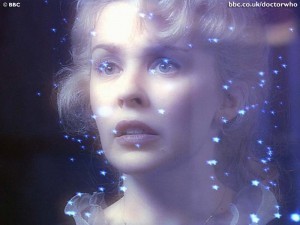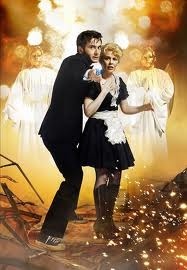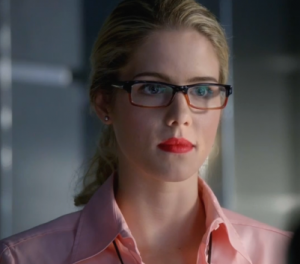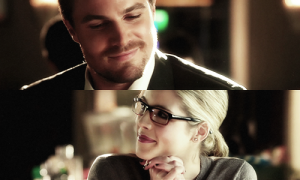Jennifer Crusie's Blog, page 292
July 28, 2013
Who Sunday: Voyage of the Damned, Russell T. Davies
July 27, 2013
Cherry Saturday: 7-27-2013
July 27th is Take Your Pants for a Walk Day.
No, I do not make these up.

July 26, 2013
McD 521 Reading List (Most of It)
Some people (Hi, Pam) have been asking me to post the McDaniel reading list for the first course (521). I’m still rewriting the PDFs for the course and looking for the last novel, and I have to put in the specific chapters from the McKee book, and the internet posts may be changed, but otherwise this is the reading list for the next 521 class. The Burroway, Browne, and McKee books will be used in the next three classes, too. (Note: The chapter numbers shift depending on what edition of Burroway you’re using; read the topic, not the chapter number.)
521-1 Intro to Romance, Story Basics
The Romance Novel PDF
Story Basics PDF
Janet Burroway, Writing Fiction, Chapter 1. The Writing Process” and Chapter 3 “Showing and Telling.”
Robert McKee, Story, [Chapters to be named shortly]
Andrew Stanton, “The Clues to a Great Story,” TED talk, http://www.ted.com/talks/andrew_stant...
Chuck Wendig, Terrible Minds blog, “25 Things To Know About Your Story’s Stakes, http://terribleminds.com/ramble/2013/...
Susan Elizabeth Phillips, Heaven, Texas
Wendelin Van Draanan, Flipped
521-2 Writing Scene
Scene PDF
Brown and King, Self-Editing for Fiction Writers, Chapter 1: Show and Tell
Robert McKee, Story
Joe Fassler, “Why Stephen King Spends Months and Even Years Writing Opening Lines,” The Atlantic, July 23, 2013. http://www.theatlantic.com/entertainm...
Chuck Wendig, Terrible Minds blog,“25 Things You Should Know About Antagonists” http://terribleminds.com/ramble/2012/...
—. “25 Things You Should Know About Protagonists” http://terribleminds.com/ramble/2012/...
Loretta Chase, Lord of Scoundrels
Beverly Jenkins, Indigo
521-3 Point of View/Voice, Critiquing Fiction
POV & Voice PDF
Brown and King, Self-Editing for Fiction Writers. Chapter 3 POV, Chapter 12 Voice.
Janet Burroway, Writing Fiction. Chapers 7&8: POV.
Jennifer Crusie, Argh Ink, “Be Yourself Because It’s Too Damn Hard To Be Somebody Else,” http://www.arghink.com/2012/10/08/7671/
—. “Lost in Translation: First to Third and Back Again.” http://www.arghink.com/2012/02/19/los...
Robert McKee, Story
Chuck Wendig, Terrible Minds blog,“25 Things You Should Know About Narrative POV” http://terribleminds.com/ramble/2013/...
—. “25 Things Writers Should Know About Finding Their Voices” http://terribleminds.com/ramble/2012/...
Charlaine Harris, Dead Until Dark
Anne Stuart, Eileen Dreyer, and Jennifer Crusie, The Unfortunate Miss Fortunes
521-4 Rewriting, The Romance Novel
Janet Burroway, Writing Fiction. Chapter 11. Revision.
Robert McKee, Story
Nora Roberts, Montana Sky
[Novel to be Named Later]
Mamet, David, “Memo to the Writers of the Wire” http://movieline.com/2010/03/23/david...
Chuck Wendig, “25 Things You Should Know About Storytelling” http://terribleminds.com/ramble/2011/...

July 24, 2013
Next Who Sunday: Voyage of the Damned
Yes, I know, we’re skipping a finale. It was depressing even if Martha does finally come to her senses and leave the Doctor flat, and the Master is a terrific Big Bad. Long overdue, Martha, that’s what I say. Instead, we’re doing another Christmas special. Yes, London is under attack at Christmas. Again. It’s “Voyage of the Damned,” aka “The Poseidon Adventure in Space” featuring the pluckiest waitress this side of Pluto. And, of course, the Doctor.

July 22, 2013
Flowers for Chuck Wendig
Chuck Wendig is prolific, profane, and profoundly smart about writing. His site, Terrible Minds, has a blog that has filled many books (very reasonably priced so you should buy them). I assign a lot of his blog posts for the McDaniel writing classes with regularity, and they always generate great discussions. Which is why I’m writing this post: I’ve exploited this guy’s work so mercilessly that I need to give back, so please go to Chuck Wendig’s blog and buy his books. I want to keep this guy in groceries and whatever else he wants so he keeps sharing how smart he is about writing story.
Take his post 25 Things To Know About Your Story’s Stakes. Story stakes are a tough concept to explain well, even tougher to put into practice. Wendig’s fast, pointed, and above all passionate advice begins with #1:
1. Story As Game: Why Stakes Matter To Us
Storytelling isn’t a game, except when it is. Part of what keeps us coming back to play a game is part of what keeps us coming back to read a story. In a game, we want to beat the odds, duck the punches, cut the balls off our enemies, and play the royal flush to win the pot of gold coins from that shitty little leprechaun — and in that game, we are frustrated by conflict and lost battles and that can push us to play again with greater verve and viciousness. A story isn’t quite so straightforward, but the analogs are there: we see the protagonists and we want them to beat odds, duck punches, cut balls, and steal from shitty little leprechauns. We are further frustrated by the conflicts and the lost battles and so we read on with faster flips of the page.
Beyond that, he’s a guy after my creative-writing-teacher-heart. Look what he says about publishing:
Writing and storytelling is not a means to an end. The story is the end. Publishing is just a delivery system. It isn’t that fucking exciting. It’s not a carousel. You should ask more questions about wordsmithy and story architecture than you do about query letters or e-book formatting.
And that’s even before you get to his impeccable takes on sexism, misogyny, and homophobia; even Jezebel has to love this guy. But mostly he’s just smart, smart, smart about writing.
If you’re a writer, you definitely need to know Chuck Wendig. And buy his books:
250 Things You Should Know About Writing
500 Ways To Be A Better Writer
500 More Ways To Be A Better Writer
500 Ways to Tell a Better Story
Full disclaimer: I’ve never met the man. I’m sure he’s lovely, but I just read his blog and make everybody I know who wants to be a writer reads it, too. It is, as he tells you up front, NSFW, but I figure if you’re reading Argh, you can take damn near anything in the written word. Also, buy his books. Thank you.

July 21, 2013
Who Sunday: Blink, Steven Moffat
Yeah, those guys.
There are many reasons why this is such a great episode, but most of them come down to two words: Sally Sparrow. She’s the Everywoman thrown into the life-or-death situation and only she can save the day. She’s Roger Thornhill in North by Northwest, Joan Wilder in Romancing the Stone, Shaun from Shaun of the Dead, an ordinary person just like us who wasn’t looking for trouble, but it found her, and now by god, she’s gonna step up and save the world. That she’s up against the Weeping Angels just makes this story trope better. The Angels show up again in two other Who episodes, but this is their best outing, trying to outwit a girl who just won’t blink.

July 20, 2013
Cherry Saturday: 7-20-2013
July 20th is Ugly Truck Day.
Look, they can’t all be winners.

July 19, 2013
The Problem of Felicity Smoak
Sometimes one character can upset a whole story plan.
Several years ago, I decided to write a book with Davy Dempsey as the hero. The first scene was on a boat where he was doing something nefarious–I forget what–and he ran into a woman who was also doing something nefarious and they were threatened by somebody with a gun and escaped and ended up in a room–this was a long time ago, people, I do not remember the details–and banter ensued, and I knew it was going to be terrific because I had this plan: he was a conman and she had two distinctly different lives and personalities she was living, and I’d done all kinds of research on the Double and the Shadow, and can you just imagine the chemistry of two people who were that duplicitous finally making a connection? So Davy was standing in the doorway and Eve was sitting on the bed–must have been a motel room–and I kept writing with the intention that he would cross the room and kiss her. Except he wouldn’t go. I could not get him to move, no matter how much snappy banter I wrote, he wouldn’t go near her, and she was completely uninterested in him. I remember sitting back in my chair at one point and saying to the computer screen, “You know, I have a plan here,” but he was immovable. So fine, somehow they end up back at the family’s art gallery and her little sister walks in the room, and she’s not beautiful and she does not have a double personality, in fact, she’s practical, hard-working, focused, the rock at the center of her dysfunctional family, and the next thing I know, she and Davy are having bad sex on the couch in the office. All the stuff about the Shadow and the Double went out the window with that beautiful story plan, thanks to Tilda who was supposed to be a minor character.
The good news was, the new story was better than I had planned. Which is why, as they say in the military (well, as Bob used to say), a plan is only valid until it meets the unpredictable human factor; then you adapt to reality. Put another way, your plan for your story only works until you meet your characters; if they don’t fit the plan, you have to change the plan to fit your people and create a new normal for the plot. Anything else is futile.
Which brings us to Felicity Smoak. Felicity began as a minor character in the world of Arrow, the TV version of the Green Arrow comic book series. I’m not sure why I began watching Arrow, it’s not my kind of story, but once I started watching, the character of Oliver caught me, especially the way he was rendered by Stephen Amell, a guy who looks like a more-muscle-than-brain surfer but who is doing an amazing job playing a selfish playboy turned grim avenger with a savior complex who spends most of his time pretending to be a selfish playboy. It’s great super-soap-opera, plus there’s his mother, a Gertrude if there ever was one; and his little sister, a brat with a heart of gold; and his best friend/sidekick, a good guy with a score to settle; the bad guy, played by John Barrowman which says it all, and Oliver’s former girlfriend . . .
And that’s where they lost me, with Laurel aka The Black Canary, the great love of Oliver’s life, because Laurel is a crusading do-gooder with no sense of humor, a beautiful woman made of self-righteous cardboard. What Oliver saw in her I could not imagine; my guess is that the writers were hamstrung into making her the character from the Green Arrow stories which meant making her an incredibly beautiful, incredibly serious, incredibly noble future superheroine, a lesser, female doppelganger of Oliver. If I wasn’t such a ‘shipper, I’d have been happy to toss Laurel overboard with her sister and follow the rest of the characters around–I don’t think I’ve ever seen a show where every single character is so over-the-top screwed up–but I am a ‘shipper and Oliver is so alone and my romance-writing radar kept looking for somebody to fill the void.
Then in Episode 3, Oliver needed some computer help and went to his company’s IT department (did I mention Oliver is immensely wealthy?) and there was Felicity, pushing up her glasses and stammering and then tilting her head at him when he fed her a ridiculous lie, and for the first time in the run of the show, grim-to-the-point-of-catatonia Oliver smiled for real, not as part of his charade. (Amell has said that wasn’t planned, he just couldn’t help it.)
I’m not the only one who saw that smile. As Episode Three aired, the showrunners watching the show’s twitter feed saw it explode with “blonde IT girl” tweets, followed by a phone call from the president of Warner Brothers who said, “I love the blonde computer girl.” So Felicity’s one-time-only-appearance minor character became a recurring character who grew in importance until she became one of only two people who know Oliver’s secret identity, which made her one of only two people he can be himself with. All of which was followed by a flood of internet pressure to make Oliver-and-Felicity happen because it was already happening.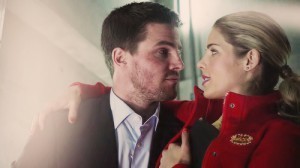
Of course much of this is due to Emily Bett Rickards, the actress who took the Felicity role and didn’t just run with it, she jumped tall buildings in a single bound with it. Her charm and intelligence and zest infuse what could have been a trite, geeky loser character. Add to her performance the very real screen chemistry she has with Amell, and the Arrow writers were already dealing with something beyond their control. But there’s more to this than the casting and performances, good though they are. The writers have, whether they wanted to or not, created a near-perfect romantic dynamic, something they could not have done with the characters they inherited from the Green Arrow stories.
First they made the character of Felicity an engaging combination of conflicting traits: she’s unsophisticated with people and very advanced with computers, she’s intrinsically sunny but capable of embracing real pain, she’s shy and unsure of herself but determined enough to stand up to an angry Oliver and leave him flat when he crosses her moral line. She’s a complete, complex character in herself, the antithesis of Oliver’s grimly serious, amazingly attractive, all-powerful, single-minded persona. There’s something about a grim, tortured, extremely hot avenger whose sanity is iffy paired with a sunny, geeky girl in glasses who believes in fighting for good without getting all angsty about it that creates not only great, crunchy scenes but also balance. Oliver without Felicity is a humorless bastard, doing good outside the law, coming very close to crossing the line into evil. Felicity without Oliver is stuck in the IT department, wasting her amazing talents fixing executives’ online screw-ups, hemmed in by her determination to be a good girl. Oliver and Felicity together mean that Oliver smiles and Felicity saves lives, that Oliver has somebody to say, “You’re going too far” and Felicity has somebody to invite her to break into a casino and cheat at cards, which means they reach the goal of every great romance story: they’re better together.
The writers haven’t messed with that dynamic. Even when they glam Felicity up to go undercover, she’s still Felicity, and even when Oliver is grimly focused on his mission, he still makes deadpan jokes in her ear. Add to that their clear and growing platonic allegiance to each other–Felicity gets angry and quits but she comes back because she knows he needs her; Oliver puts the mission before everything else until Felicity is in danger and then he throws the plan away to get her out–and the “better together” is reinforced.
But that surface trope of “opposites attract” and its awful cousin “You complete me” wouldn’t be enough without the second key to a strong romantic relationship: they have the same core beliefs. No matter what Oliver was before he was shipwrecked, he’s a good man now with a burning desire to save people from predators. And no matter how reluctant Felicity is to work outside the law, if somebody is in trouble, she doesn’t hesitate. So their crunchy differences notwithstanding, Oliver and Felicity have the same values, the same it’s-got-to-be-done-so-let’s-do-it, matter-of-fact approach to their responsibilities to the human race. They may argue about their methods, but they don’t argue about their goals.
Which brings us to the third component, one of the strongest building blocks of any romance plot: Oliver and Felicity work together on something they care desperately about, achieving those goals. Their relationship is not built on physical attraction or the potential of a physical relationship, they respect each other’s strengths, they’ve learned to cooperate despite their differences, and by the end of the first season, they need each other because only they and Diggle, the third in their triumverate, can do the job. In fact, they’re the only ones who can understand the job in all its Byzantine, secret-society, hidden identities plot insanity. They’re not just working together, they’re risking their own and each other’s lives together for a cause they believe in, and that builds a bond.
The slow build of that working relationship has been tremendously effective. One of the most interesting things about the fan reaction to all of this is that the Oliver-Felicity ‘shippers talk about Oliver and Felicity finally becoming a couple in the third or fourth season. You’d think that the average romance fan would be rooting for at least a kiss in the second season, but I think they recognize that the fun of Felicity and Oliver in the first season was watching it happen, and that the strength of the future relationship is best built over the long haul. Arrow is not a romance novel; it’s a superhero story with a romantic subplot that leaves people cold and a friendship subplot that people are hot about. When you have readers or viewers saying about the arc of that subplot, “Not yet, I want to see this happen,” you’ve put a very strong relationships on the page or screen.
But for the Arrow writers, there’s that source problem: Oliver is destined to marry Laurel, which means that Oliver-and-Felicity are off the table, not gonna happen, thanks for playing, unless the showrunners are willing to jettison the Black Canary for the Blonde IT Girl. They have, in short, the Felicity Smoak problem: you think as a writer you have control of your universe and you do, until your characters and your readers or viewers react in ways you didn’t foresee. At that point, you’d better learn to be flexible or go down fighting a losing battle. The characters are always right.
The good news for Arrow is that the showrunners have already shown a cheerful enthusiasm for dumping some of the chaotic Green Arrow bible to make their stories better. That coupled with the equally cheerful enthusiasm they have for Felicity in interviews, and I’m starting to have faith that the people behind Arrow know what the military knows: a plan is all well and good until it meets Felicity Smoak.
Then you go with Felicity.

July 18, 2013
Tyler Adam Smith’s Covers for Books That Should Be Written
We’ve talked a lot about book covers here on Argh, so this seemed a good link, Tyler Adam Smith’s 100 Books That Should Be Written, from his master’s degree study on branding. His assignment was to come up with a project that required a submission every day for 100 days. The ideas are all interesting, many of the titles are in-joke funny (George R. R. Martin’s I Will Kill Everyone You Love), and some of the covers are wonderful:
And now I kind of want to do 100 of something. Maybe to get back in the swing of things, I could do a small collage every day, really small, like two images, with a line from a story they might illustrate. Mental calisthenics. I know I’m already overwhelmed, but this might be really good for me. And it’s finite. Only 100 things. Must cogitate. Must get the pantry done first, of course. And the curriculum. But then . . .
In the meantime, what’s the title of a book you think needs to be written? I can think of so many . . .
The Children of the Thief of Time (aka Death’s Grandchildren)
The Right Way Is Only One Option: ReHabbing Your Cottage on a Limited Budget and Unlimited Delusions of Skill
Never Sleep Alone: The Rescue and Training of Abandoned Dachshunds
I got a million of them. What’s yours?

July 17, 2013
Carpe Sharknado
First confession: I did not watch Sharknado.
Second confession: I’m not going to watch Sharknado.
Third confession: I would LOVE to have written Sharknado.
Sharknado, for those of you who may have missed either the movie or the massive internet buzz, is the story of the owner of a beach bar in LA, the people in his life, and what happens when global warming causes flooding that leads to a tornado that sucks up sharks from the ocean and drops them on the beach where they devour his friends. The actor who plays the bar owner, Ian Ziering, is getting rave reviews for taking his role seriously, which he should because taking your role seriously in a movie or a novel like this is crucial. The whole point of writing something like Sharknado is to go all in. The minute you start winking at the audience or your readers, you’re just smarmy and smug and refusing to enter into your own story, starving it of energy and passion. You have to believe that a tornado could suck up sharks that would then remain alive and eat people as they fall, or you have no right to a concept as epic as Sharknado, let alone a title that good. The hero, by the way, is named Fin.
I cannot tell you how much this concept, this story, makes me happy, and I say that in all seriousness because this is what writers have to do make amazing story. There are a lot of story snobs out there moaning about how devoid of value this movie is in much the same way that some of my profs in MFA program moaned about how popular fiction was lowering the IQ of the masses. I tried to point out that the masses just wanted a good story which is what the masses have been wanting since before Gilgamesh, that the reason popular fiction is popular is because it delivers what the masses (aka Real People) want, but they couldn’t see it.
James Poniewozik’s Time Magazine review puts it well:
One of the greatest legacies left behind by the late film critic Roger Ebert–who celebrated some of the movies’ greatest artistic triumphs and also wrote the screenplay for Beyond the Valley of the Dolls–was that a work of art needs to be approached critically on its own terms. A movie like Syfy’s Sharknado, say, should not be judged on how well it fulfills the standards of Band of Brothers. It should be judged on how well it fulfills the standards of a movie with the title Sharknado.
So we must ask different questions of this movie. We must ask: Does it entertain? Does it make us squirm while laughing while reconsidering our commitments to a pescatarian diet? Does it, we must ask above all, give us sharks in a tornado?
Ebert, as usual, gets it exactly right and so does Poniewozik: Comparing stories is ridiculous, especially comparing stories across genres. All that really matters to a viewer or a reader is “Does this story deliver on its promise? Do I get what I came to the screen or page for?” It’s the reason covers are so crucial to a print book’s success, the reason that first scene or chapter is crucial to any book’s success: it’s where you make your promise to the reader. But it’s not enough to set up a cover or a first scene that invites the appropriate reader to the story inside, it has to make that reader want to step in. When a writer opens the door into a story and the viewer or reader peeks inside, there has to be a party in there. Whether or not the reader goes inside depends on the kind of reader and the kind of party, so the key is to make sure that the reader who goes in is going to get the kind of party she or he wants. The brilliance of a title like Sharknado is that you know exactly the kind of party you’re getting (which is why the tagline is “Enough said”).
There are people who are pointing out that sharks would die if a tornado sucked them out of the water, that dropping onto land would kill them, that bombing a tornado would not stop it, that because of this and many other failures of Good Taste and Art, Sharknado is trash, crowding out worthwhile films while pandering to the masses. (Hi, I’m Jenny, and I’m a Mass.) Oddly enough, these people do not point out that there’s no scientific basis for Gregor Samsa turning into a cockroach. That’s because Gregor is throwing the kind of party they like, while Fin is dissecting a shark with a chainsaw. And EVERYBODY SHOULD LIKE THE KIND OF PARTY THEY LIKE BECAUSE OBVIOUSLY, GOOD TASTE. This is not only close-minded, bigoted, and short-sighted, it’s toxic to good storytelling.
One thing that an MFA can do to you, or hanging out in the New York Times Book Review section, for that matter, is make you second-guess your go-for-it instinct. You think, “What if a tornado sucked up sharks and dropped them on land where they ate people. I could call it Sharknado. And then in the end, Bruce Campbell could do a Jonah and cut himself out of the inside of a shark with a chainsaw. Oh, my God, how much fun would that be to write?” And then you remember that sharks can’t live out of the water and the fall would kill them and you couldn’t get Bruce Campbell anyway, and it’s a dumb idea and you go back to thinking about something practical.
This way lies creative disaster. Never ever start thinking about the objections to your story before you’ve written your story. Never ever second guess an idea that makes you breathe faster, that makes a million story moments race through your head, that makes you think, “It would be so much fun to write this story, I want to write this story.” If a Sharknado appears in your frontal lobe, you must write Sharknado. Ignore the naysayers, the literary snobs, the nitpickers, and go for it. I wish I’d thought of something as brilliantly over the top as Sharknado because once you start with sharks in a tornado, there really is no place you cannot go. You are freed from logic, from science, from technology, from rationality. You just have Your Guy (of course, I’d have My Girl) facing airborne fish with teeth. Wind. Flood. Houses falling down. Bridges out. The age-old problem of “Where’s my conflict?” Solved. Antagonist? Coming at you with teeth. Audience hook? “OH MY GOD, THERE ARE SHARKS IN THE TORNADO!” It takes my breath away.
I love everything about Sharknado. I might even have to watch it although bloody horror films about sharks are not my party (I still haven’t seen Jaws). But mostly I need to remember it so that the next time I have a Sharknado moment, I seize it. The world needs stories that don’t give a damn about anything except making the reader’s head explode with joy, and to get that it needs storytellers who can not only recognize when a Sharknado appears before them, but also grasp the idea with both hands and shouts of joy and no fear of what people might think of them for grasping an idea like Sharknado with both hands. It needs writers with chainsaws.
Carpe Sharknado, people. Great stories await if you do.
(For your inspiration: Sharnado sequels that should be written.)
ETA: The Sharknado sequel is scheduled for 2014, except this time the sharks fall on NYC:


